The Arab World
History
algebra

The study of mathematical symbols and the rules for manipulating these symbols. Algebra. In history, algebra is a branch of mathematics that originated in ancient civilizations, providing a systematic way to solve equations and problems.
arabesque
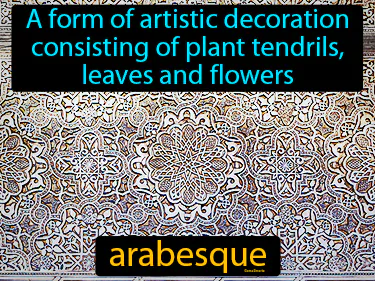
A form of artistic decoration consisting of plant tendrils, leaves and flowers. Arabesque. Arabesque is a decorative art style used in Islamic architecture that features intricate patterns of intertwining plants and geometric designs.
astrolabe
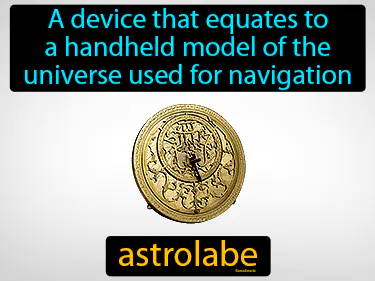
A device that equates to a handheld model of the universe used for navigation. Astrolabe. An astrolabe is an ancient tool used by astronomers and navigators to measure the positions of stars and planets.
caliph
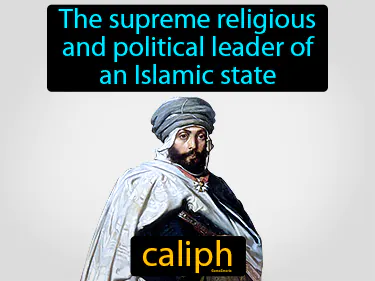
The supreme religious and political leader of an Islamic state. Caliph. The caliph is a leader in Islamic history who succeeded the Prophet Muhammad and governed religious and political matters in the Muslim community.
caliphate
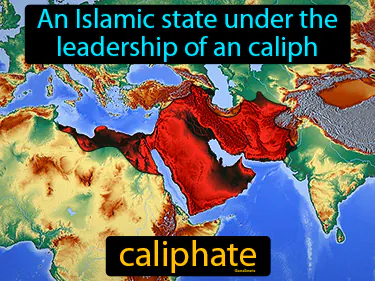
An Islamic state under the leadership of a caliph. Caliphate. A caliphate is a form of Islamic government led by a caliph, who is considered the religious and political successor to the Prophet Muhammad.
calligraphy
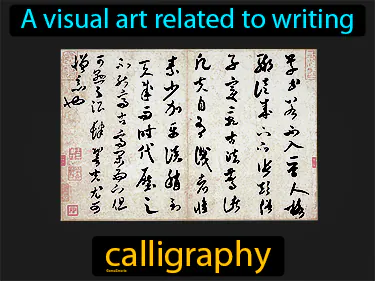
A visual art related to writing calligraphy. Calligraphy is the artistic practice of designing and creating decorative handwriting or lettering, often used in historical manuscripts.
caravan
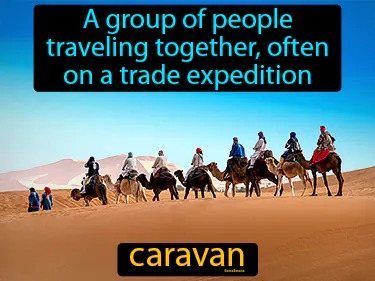
A group of people traveling together, often on a trade expedition. Caravan. A caravan is a group of traders or travelers journeying together across places like deserts, commonly seen in ancient times for safety and commerce.
Five Pillars
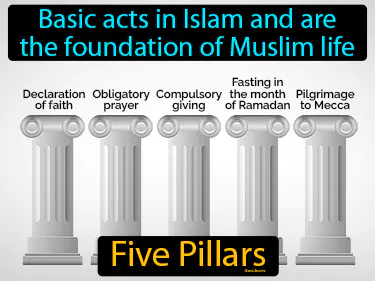
Basic acts in Islam and are the foundation of Muslim life. Five Pillars. The Five Pillars are the core practices that define Islam and guide the daily lives of Muslims.
hajj
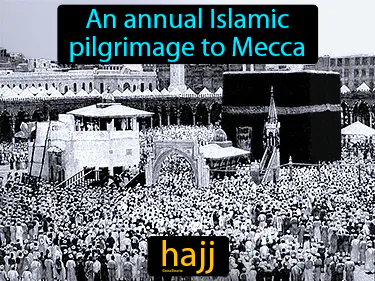
An annual Islamic pilgrimage to Mecca. Hajj. Hajj is a religious journey that Muslims make to the holy city of Mecca, following traditions that date back to the time of the Prophet Muhammad.
hijra
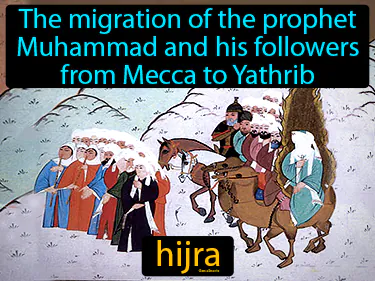
The migration of the prophet Muhammad and his followers from Mecca to Yathrib. Hijra. Hijra refers to the journey Muhammad and his followers took to escape persecution, marking the beginning of the Islamic calendar.
Ibn Sina
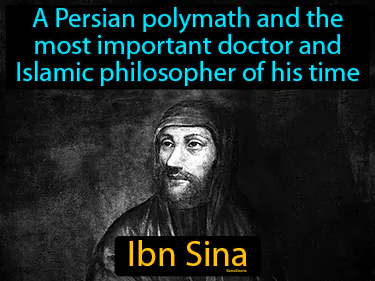
A Persian polymath and the most important doctor and Islamic philosopher of his time, Ibn Sina. Ibn Sina, also known as Avicenna, was a medieval physician and philosopher who made lasting contributions to medicine and philosophy.
Islam
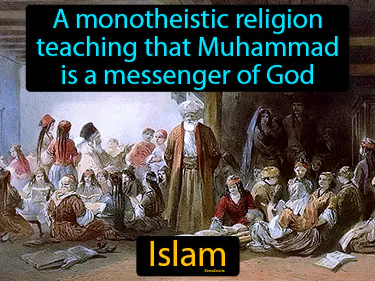
A monotheistic religion teaching that Muhammad is a messenger of God. Islam. Islam is a major world religion founded in the 7th century in Arabia, emphasizing submission to Allah.
Kaaba
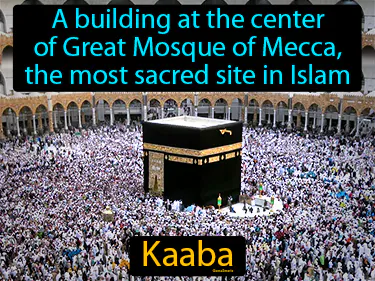
A building at the center of Great Mosque of Mecca, the most sacred site in Islam. Kaaba. The Kaaba is a cube-shaped structure that Muslims around the world face during prayer, and it is considered the most holy site in Islam.
Khadija
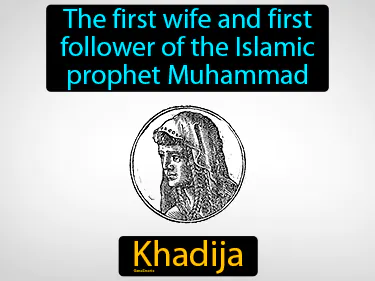
The first wife and first follower of the Islamic prophet Muhammad. Khadija was a successful businesswoman and the first person to convert to Islam.
minaret
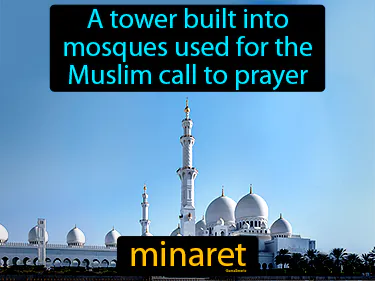
A tower built into mosques used for the Muslim call to prayer. Minaret. Historically, a minaret is a tall, slender tower attached to a mosque from which a person calls Muslims to prayer.
mosque
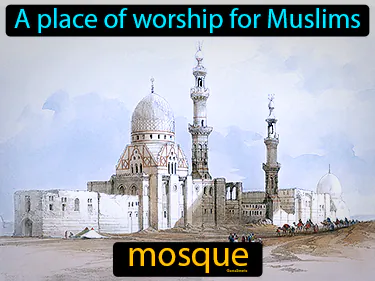
A place of worship for Muslims mosque. In history, a mosque is a building where Muslims gather for prayer and community activities.
Muhammad
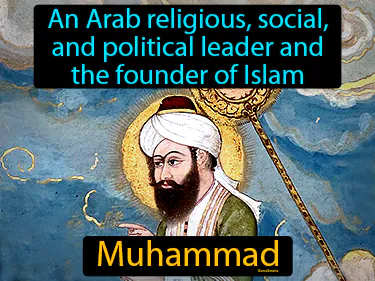
An Arab religious, social, and political leader and the founder of Islam. Muhammad. Muhammad was a 7th-century prophet who established the religion of Islam and unified much of the Arabian Peninsula under his teachings.
Muslim
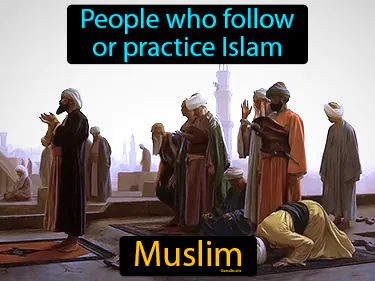
People who follow or practice Islam. Muslim. A Muslim is someone who follows the religion of Islam, which was founded in the 7th century in the Arabian Peninsula by the Prophet Muhammad.
oasis
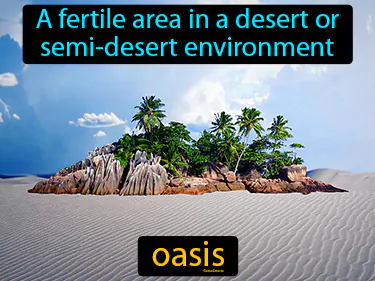
A fertile area in a desert or semi-desert environment. Oasis. In history, an oasis is crucial as it provided water and resources for ancient trade routes and settlements.
pilgrimage
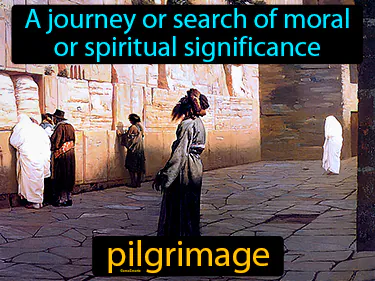
A journey or search of moral or spiritual significance. Pilgrimage. In history, a pilgrimage is a spiritual journey where people travel to sacred sites, like the Christian pilgrimage to Jerusalem or the Muslim Hajj to Mecca.
Quran
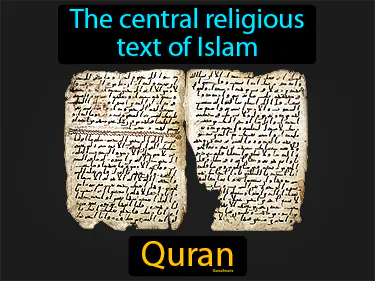
The central religious text of Islam. Quran. The Quran is a holy book believed by Muslims to be the word of God as revealed to the Prophet Muhammad.
Rhazes
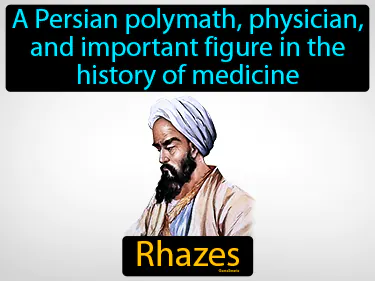
A Persian polymath, physician, and important figure in the history of medicine. Rhazes. He was a leading scholar who significantly contributed to medical knowledge during the Islamic Golden Age.